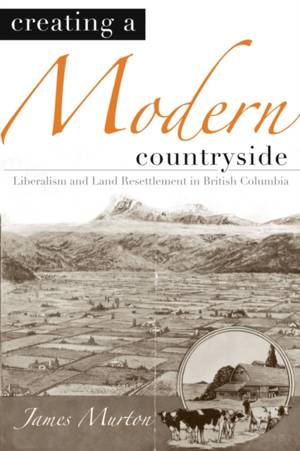
- Afhalen na 1 uur in een winkel met voorraad
- Gratis thuislevering in België vanaf € 30
- Ruim aanbod met 7 miljoen producten
- Afhalen na 1 uur in een winkel met voorraad
- Gratis thuislevering in België vanaf € 30
- Ruim aanbod met 7 miljoen producten
Omschrijving
In the early 1900s, British Columbia embarked on a brief but intense effort to manufacture a modern countryside. The government wished to reward Great War veterans with new lives: settlers would benefit from living in a rural community, considered a more healthy and moral alternative to urban life. But the fundamental reason for the land resettlement project was the rise of progressive or "new liberal" thinking, as reformers advocated an expanded role for the state in guaranteeing the prosperity and economic security of its citizens. James Murton examines how this process unfolded, and demonstrates how the human-environment relationship of the early twentieth century shaped the province as it is today.
Specificaties
Betrokkenen
- Auteur(s):
- Uitgeverij:
Inhoud
- Aantal bladzijden:
- 280
- Taal:
- Engels
- Reeks:
Eigenschappen
- Productcode (EAN):
- 9780774813389
- Verschijningsdatum:
- 1/01/2008
- Uitvoering:
- Paperback
- Formaat:
- Trade paperback (VS)
- Afmetingen:
- 150 mm x 226 mm
- Gewicht:
- 453 g

Alleen bij Standaard Boekhandel
Beoordelingen
We publiceren alleen reviews die voldoen aan de voorwaarden voor reviews. Bekijk onze voorwaarden voor reviews.











